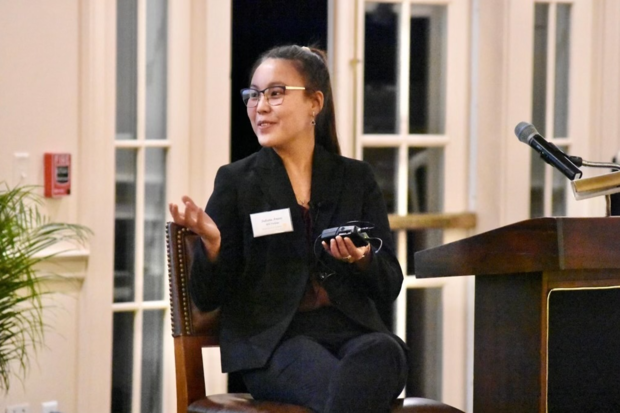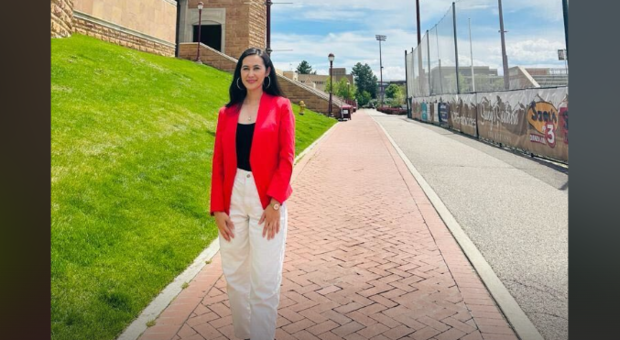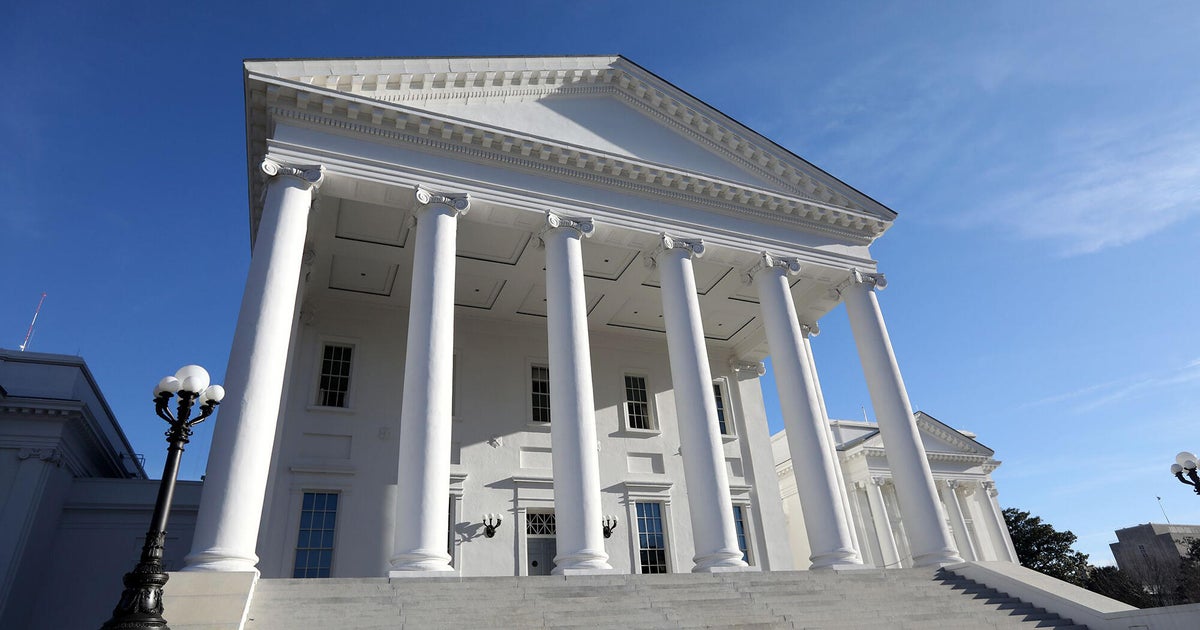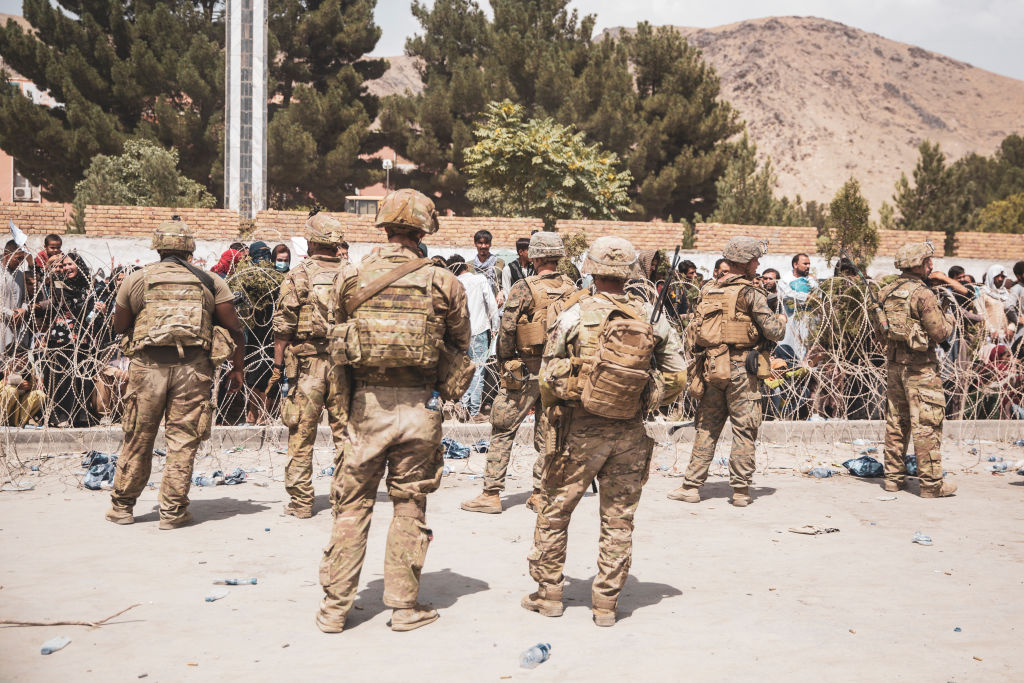Many Afghans who fled Taliban takeover two years ago are still waiting for asylum in U.S.
Sultana Amani was among the Afghans who were able to flee Afghanistan as Kabul fell to the Taliban in the summer of 2021. She felt safe as the plane touched down in Virginia, before she was overwhelmed by worry about what the future held.
She and her family, along with 77,000 Afghans, resettled in the U.S. under humanitarian parole, a policy that allows people who may not otherwise be eligible to be in America to live and work here temporarily.
CBS News first spoke to Amani and her family when they arrived at Fort McCoy, in Wisconsin, where they stayed for two months before finding housing in Maryland, with the help of the International Rescue Committee.
Amani has found the adjustment to American life difficult and emotionally taxing. Her mother, Khadija Rahimi, worked in the Afghan government — the family left Afghanistan in part over fears of retribution by the Taliban. In Maryland, Rahimi, unable to find work, fell into a yearlong depression. Amani's father, Mohammad Amani, an artist known for his ornate carpets, now works at a bakery. They're grateful to be safe but are homesick for Afghanistan.
Amani, now a student at American University, maintains her connection with Afghanistan by continuing to work with the non-profit Blossom Pad, which she founded in Afghanistan. The group gives menstrual sanitary pads to disadvantaged Afghan girls. "I like being here because I have access to everything. Nobody tells me what to do," says Amani.
Everyone in the family has applied for asylum, but only Amani's application has been approved so far. Fewer than 5,000 of the 77,000 Afghans resettled in the U.S. under a special legal process have secured permanent legal status for themselves and their families, according to Department of Homeland Security figures.
Every day when she comes home from school, her family members ask her to check on their asylum status.
"Their situation is unknown. They don't know what is going to happen," Amani said. "I don't know why this process is like this."
Stalled process
When Afghan refugees arrived in the U.S. after the chaotic American withdrawal from Afghanistan, they were allowed into the country under humanitarian parole for two years. The Biden administration is allowing those Afghans to apply to stay and work in the country legally for at least another two years. This alleviated the immediate fears of losing their ability to work and live in the U.S. legally, but it doesn't confer any kind of permanent status.
For that, Congress would have to pass the Afghan Adjustment Act that is currently stalled amid concerns by some Republicans that the evacuees were not properly vetted. Vetting was a significant challenge during the chaotic evacuation, which let some dangerous individuals slip into the U.S. The legislation would require additional screening for those applying for permanent residency.
"Sitting around and not doing anything is just not an option here. What does it say to people around the world when they stand with America?" Senator Amy Klobuchar, Democrat of Minnesota, who introduced the bill, said in a statement to CBS News.
There is currently a congressional mandate meant to expedite Afghan evacuee asylum cases, but the U.S. has been inundated with asylum requests from all over the world. There are over 700,000 urgent pending applications, according to the U.S. Citizenship and Immigration Services. Recently USCIS postponed interviews for all affirmative asylum cases to deal with the implementation of a new asylum rule along the southern border.
The International Rescue Committee has filed over 1,200 asylum applications on behalf of Afghan humanitarian parolees but there have been only 220 approvals.
Fears about 2024 U.S. elections
Rana Azad, an Afghan refugee living in Denver, found work as an aide at a high school. Her brother has not been able to find a job, despite his computer science background. Companies are unwilling to hire him without permanent residency, according to Azad. The process so far has been challenging and filled with paperwork.
"We are young. We have so much things we can do in the U.S.," says Azad. "When you don't have any clear status, it's difficult."
Another fear looms over Azad, too — the 2024 presidential election.
"Most of us, we have the fear that if Trump is coming," she said. "I don't know how the situation will be. Maybe we will have to get out of this country. We have no ideas but it is a kind of fear. What should we do?"
Left behind in Afghanistan
For the Afghans who worked for the U.S. government and were left behind, each day their special immigration visa process is not approved is one they live in fear of Taliban retribution.
One Afghan who has been living and working in the U.S. since before the Taliban seized power worries about his brother, who worked for the U.S. Agency for International Development (USAID) and applied for a special immigration visa at the end of 2020. He has not been able to leave Afghanistan and is still waiting for his visa to be approved. The Afghan and his brother are not being identified by CBS News over concern for their safety.
In the meantime, the threat of violence has forced the brother to move to a different neighborhood, and he no longer allows his children to attend school. He said that in 2021, his son was kidnapped on his way to class. The National Directorate of Security intervened and was able to save his son, but in the exchange, one of the kidnappers was killed.
The Taliban promised to not seek revenge against those who worked for the U.S., but retribution attacks happen regularly, and there is no longer media around to report on the incidents, said Sayyid. His cousin, a former police officer, was arrested last week. Sayyid's brother fears the same thing will happen to him.
"[The U.S.] should take care of the people who are worked for them, right? You cannot leave them to die," Sayyid said.
Camilo Montoya-Galvez contributed to this report.





